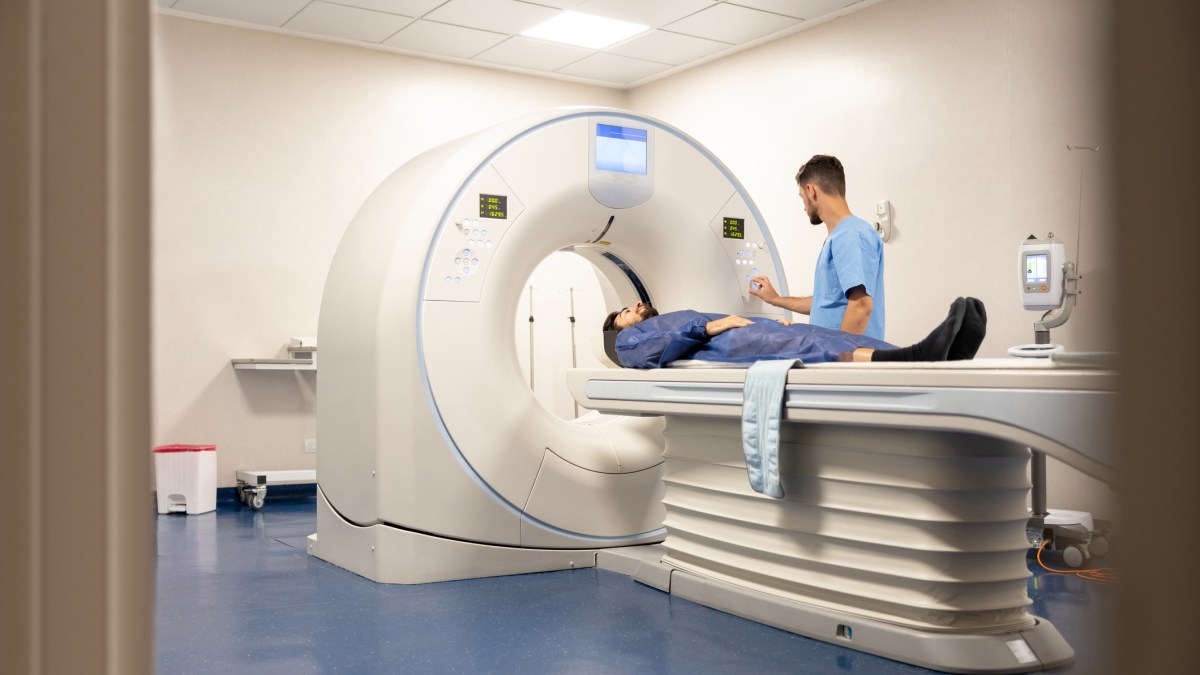Up to 5,000 men a year could avoid unnecessary treatment for prostate cancer if “outdated” guidance reflected the latest evidence, a charity has said.
Overtreatment of the disease with surgery or radiotherapy can lead to side-effects such as erectile dysfunction or incontinence, according to Prostate Cancer UK.
Men who have a slow-growing prostate cancer diagnosed at an early stage are often advised to undergo “active surveillance”, which is when they are closely monitored but they do not have treatment.
However, experts have warned that there is a “Wild West” in how this is implemented in the NHS, because guidance from the National Institute for Health and Care Excellence (Nice) is out of date.
Prostate cancer is the most common form of cancer in men, and there are about 55,000 new cases diagnosed in the UK every year.
When the tumour is slow-growing and unlikely ever to cause the patient harm, Nice advises specialists to implement active surveillance and monitor the patient closely with blood tests and scans. About 6,500 men a year opt for this monitoring, to avoid the side-effects of treatment.
However, Nice’s guidance has not been updated since 2021 and Prostate Cancer UK said it had “fallen behind” medical advances, which allow doctors to better identify when men are at low risk.
• Dr Mark Porter: Your AI-upgraded doctor will see you now. It’s (mostly) good news
Analysis of responses to freedom of information requests by the charity found 24 per cent of hospitals relied on the Nice guidance alone to implement active surveillance.
It also found 35 hospitals had created their own guidelines, which Prostate Cancer UK warned could lead to inconsistency and confusion.
The charity is repeating its call for Nice to update its guidance on active surveillance, saying it could help 5,000 men a year avoid overtreatment.
It also claims the outdated guidance is hindering the introduction of a screening programme because it could lead to more overtreatment.
• Prostate testing saved me. Every man should have it done
Amy Rylance, assistant director of health improvement at Prostate Cancer UK, said: “To reduce the harm caused by prostate cancer and build the foundations for a screening programme, we need to both save lives and prevent unnecessary treatment, but official guidelines still haven’t caught up with the clinical evidence.
“Concerns about overtreatment are a major reason the UK does not routinely screen for prostate cancer, despite it being the most common cancer in England.
“Acting on latest research that shows more men can safely opt for monitoring instead of treatment will reduce overtreatment and the harm it causes.
“We asked Nice to update their active surveillance guidance two years ago, but our request was rejected. Now we have evidence this is potentially affecting thousands of men. Enough is enough.”
The NHS uses a prostate-specific antigen (PSA) blood test to check for conditions including prostate cancer or an enlarged prostate.
• Cancer patients are dying after choosing fad social media ‘cures’
Routine PSA testing is not offered on the NHS, but patients may be offered a PSA test if a GP suspects they have prostate cancer, and men over 50 can request a test from their GP even if they do not have symptoms.
There have been calls to expand testing across the health service, although some argue that widespread use could identify cases which may not have caused problems or needed treatment.
Vincent Gnanapragasam, professor of urology at the University of Cambridge, said: “Active surveillance is the best treatment option for men whose cancer is unlikely to progress or cause them problems in their lifetime.
“But Nice’s outdated guidelines have created a deeply concerning Wild West on how surveillance is implemented by different healthcare teams.
“This inconsistency is resulting in a lack of confidence from patients in surveillance, who may instead opt to have treatment they may not have ever needed, risking harmful side-effects.
“Programmes for active surveillance that are standardised and individualised to a man’s risk factors have been tested and proven to work.”
The UK National Screening Committee is assessing whether a national screening programme for prostate cancer should be introduced.
